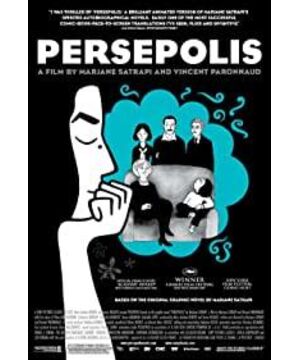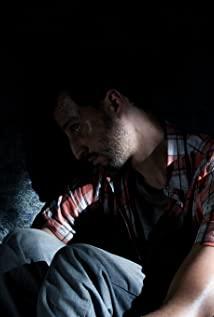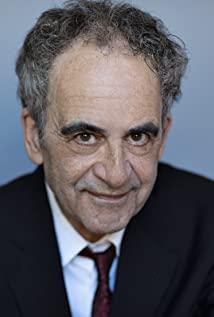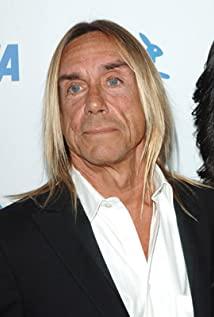I am an extremely distracted person. I will miss important conversations when listening to a story, and then annoy the person who tells the story. Watching movies is even more torture for me. Especially when this kind of cultural person in a foreign land tells why he went into exile, it is actually a very serious history, but that history is too far away from me, even farther away than the price of vegetables. I often go wrong.
Fortunately, I am a loyal reader of Orhan-Pamuk. He has a controversial political novel entitled "Snow". In that book, many girls believe in freedom, fight against Islam, take off their veil, and even choose to commit suicide, which is strictly prohibited in Islam. This is a social phenomenon worth studying, but it scares the government in the book, and that kind of fear scares even the real government. Pamke's book is burning all over the country. Pamuk fled to New York, and the free country rewarded him with the Nobel Prize in Literature, just like a Chinese writer.
So I can probably feel a commonality. The Turks and Persians did not recognize Islam in their hearts. That was something the Saracen Empire imposed on them. When they have the need for freedom, they all point to Islam.
I have always wondered, is freedom and dictatorship really that opposite? Persepolis deepens my confusion.
Persepolis tells the history of Iran like this:
In 1923, the Turkish Revolution led by Kemal succeeded and the Republic of Turkey was established.
In the same year, Cossack officer Reza Khan launched a coup in Iran and became prime minister. However, soon, under the instigation of Britain, Reza Khan changed his political system, established the Pahlavi dynasty, and became a king. Iran began to be pro-Western, establishing a modern army, universities, and industry. However, his successor Pahlavi began to become corrupt, the economy was in depression, and he adopted high-handed policies against the people.
In 1978, Tehran began to see a large number of demonstrations and protests, and a nationwide strike led to the country's paralysis. In the end, the Islamic Revolution broke out in Iran in 1979, which overthrew the monarchy and established the Islamic Republic. The new republic did not develop the economy, but adopted a more repressive policy against the people. The government used Islam to control this nation.
In 1980, the long-term border friction and the unstable situation in Iran led to war between Iran and Iraq. Millions of people were killed and injured on both sides. There was a stalemate for eight years, but the outcome was irreconcilable. Tehran suffered large-scale air strikes during the war and suffered heavy losses.
The history is over. A piece of history that has no relationship with me.
But I want to capture a certain young man who participated in the Islamic Revolution. I want to ask him some questions:
1. You have seen everything that happened afterwards. If you have the same opportunity now, you will go to the revolution. NS?
2. Saddam was eyeing and wanted to transfer the domestic contradictions to Iran. Can you see it at that time? Are you more capable of enduring dictatorship or more capable of enduring war?
3. If the Pahlavi government continues to follow the Westernization route, will it definitely be worse than the people’s livelihood in the Islamic Republic, assuming no war occurs?
4. If Iran can be as stable as Turkey, do you think the social environment under the monarchy can make you feel free?
5. Back then you were a young man. Back then, you really knew where to go in Iran. Did you really know whether your move was to defend Islam, oppose the government, or because of your passion and don't know where to go? Do you really know who is leading the revolution, what kind of person is he, and what is his purpose?
6. The two sides of the Iran-Iraq War are Sunni and Shia. Do you really think that the revolution has not been turned into a tool for religious sectarian disputes?
I am still young, and I must always control the enthusiasm for fighting for ideals and interpret it as dissatisfaction with reality. However, I often do this. I also know that maybe I can't stand any incitement. I forgot to reflect when standing in the crowd, just screaming my "ideal"; I also know that I have received all kinds of extreme education, Give me a chance for revolution, and I will release that imbalance.
Some people are really dedicated to their ideals, and Qu Qiubai and Yun Daiying are really just singing the Internationale. But why when such a scene is moved to the movie, the audience's response is indifferent, secretly laughing, or even pointing?
Perhaps the Shia Islam is also a good ideal, and it may have attracted many young people to fight and dedicate themselves to this ideal. Perhaps the young people in those days were really willing to believe it, but now the middle-aged people still believe it. I saw that young people who suddenly got rid of the monarchy lost their consciousness of restraining themselves in a turbulent society, so they were no longer responsible for the revolution. They vented their anger in society. As Marjane's grandmother said in the movie, people cry because they confess their mistakes to themselves, and people are angry because they don't have the courage to admit it yet. So there is no shame in crying.
Sometimes, I really don’t know what freedom is. I can't imagine, if I am more free what I should do, will I be happier. If I have more choices than a person's normal needs, will I only make myself more painful and empty. I was born in such an environment, and I probably adapted well.
But this word sounds really good.
When I was young, and when I had ideals to fight for, I should be very thankful that freedom was not my ideal.
The Islamic Revolution almost destroyed Iran. Maybe some young people really regretted participating in that revolution.
I really only talk about Iran.
View more about Persepolis reviews











